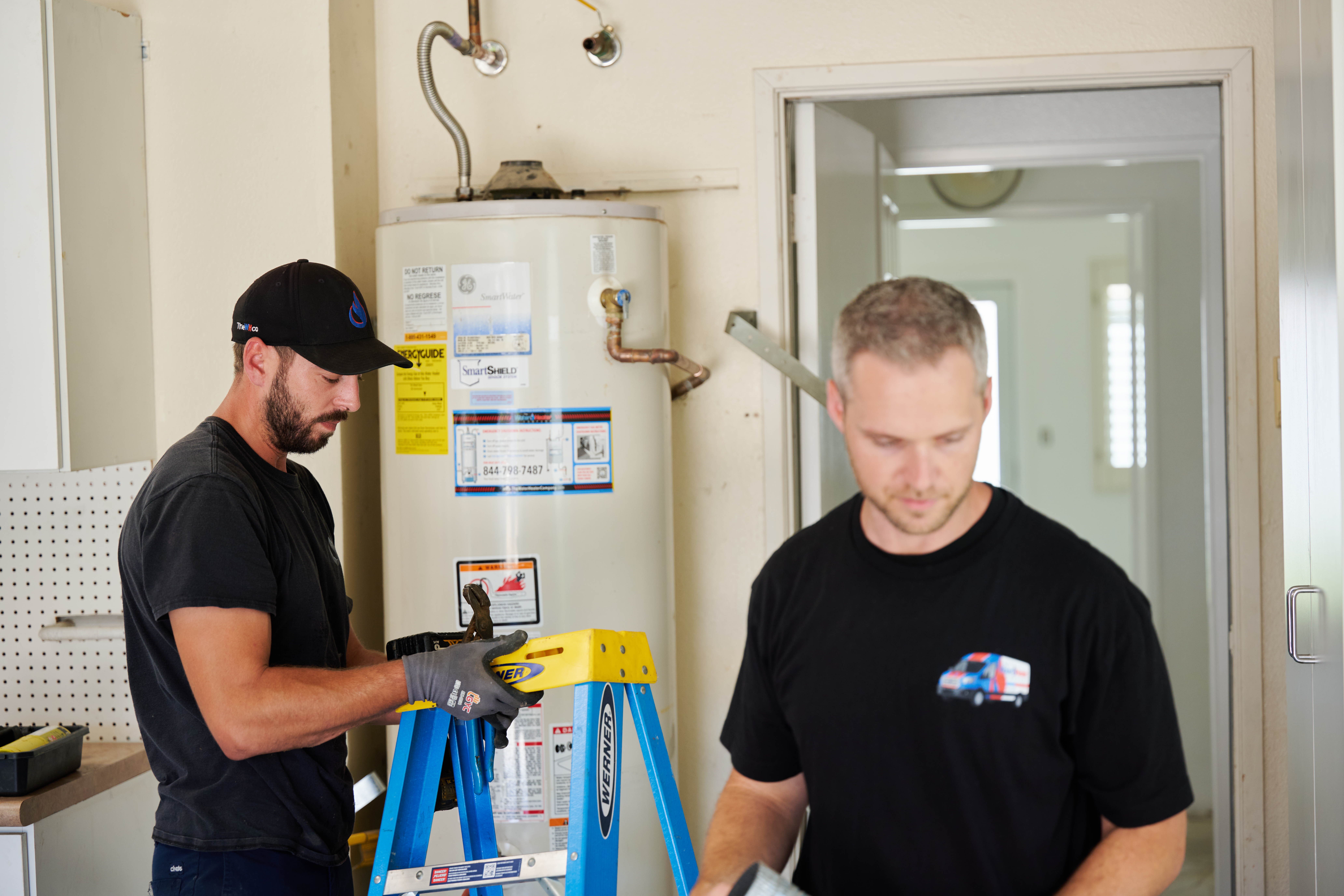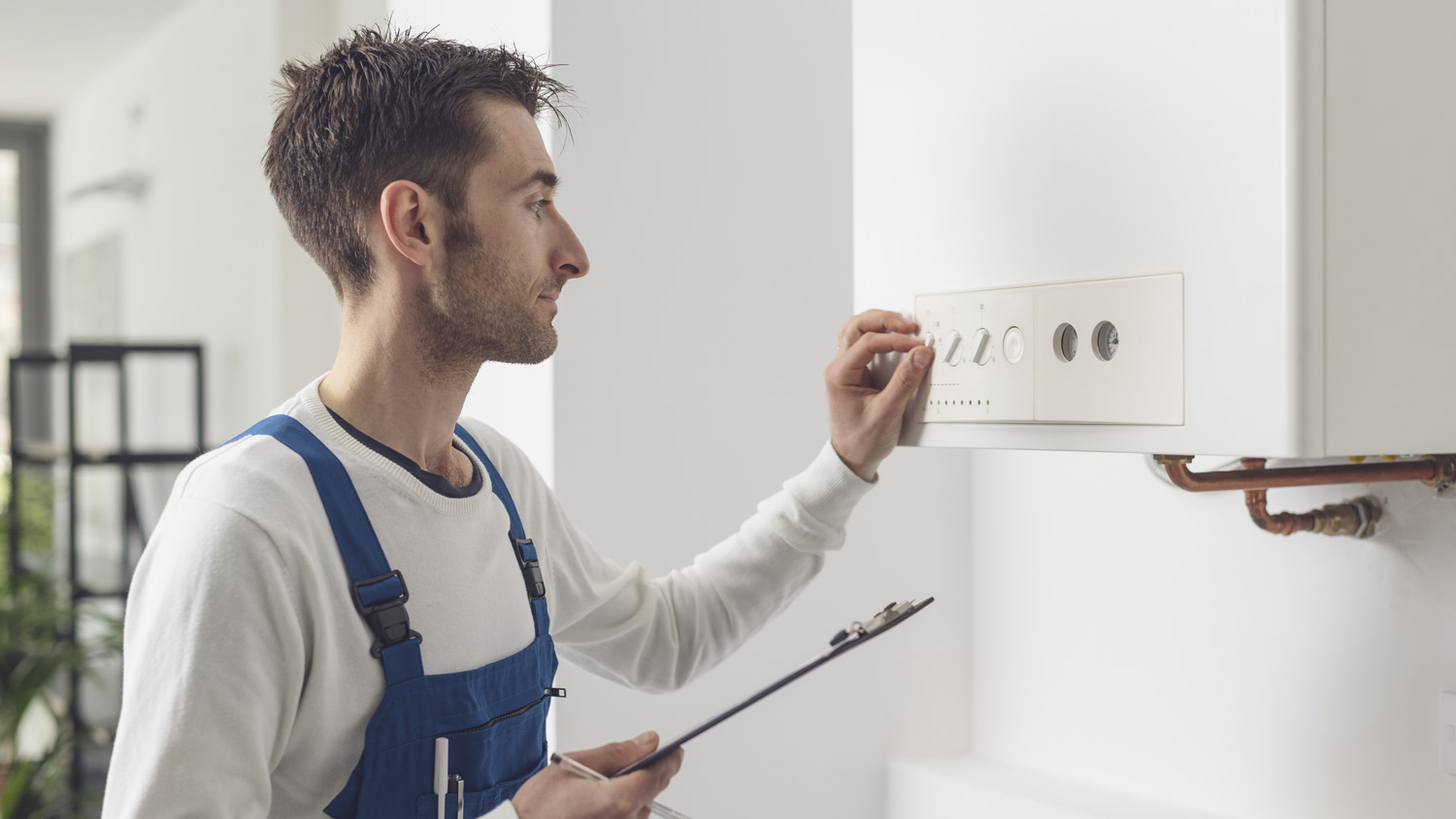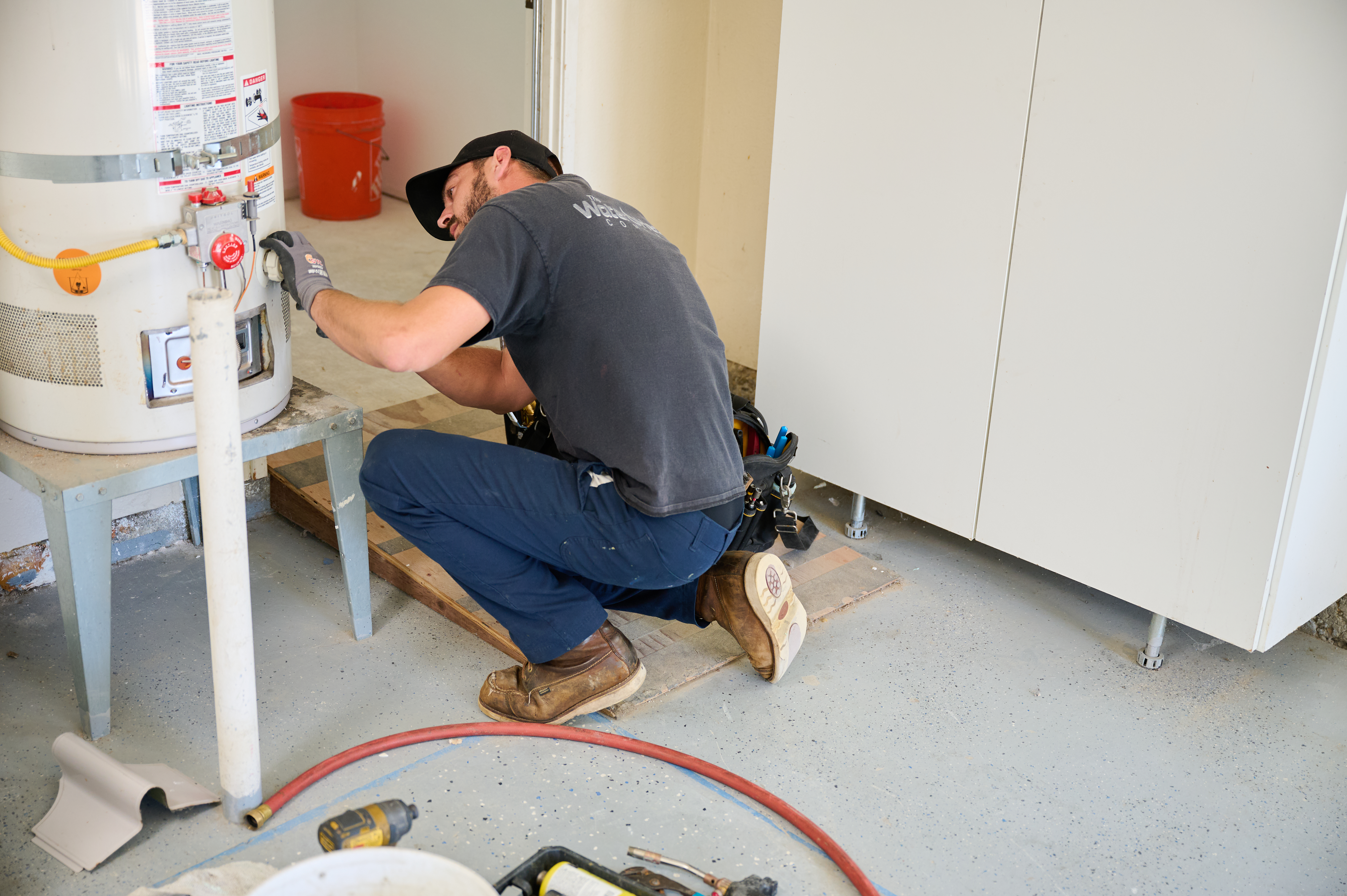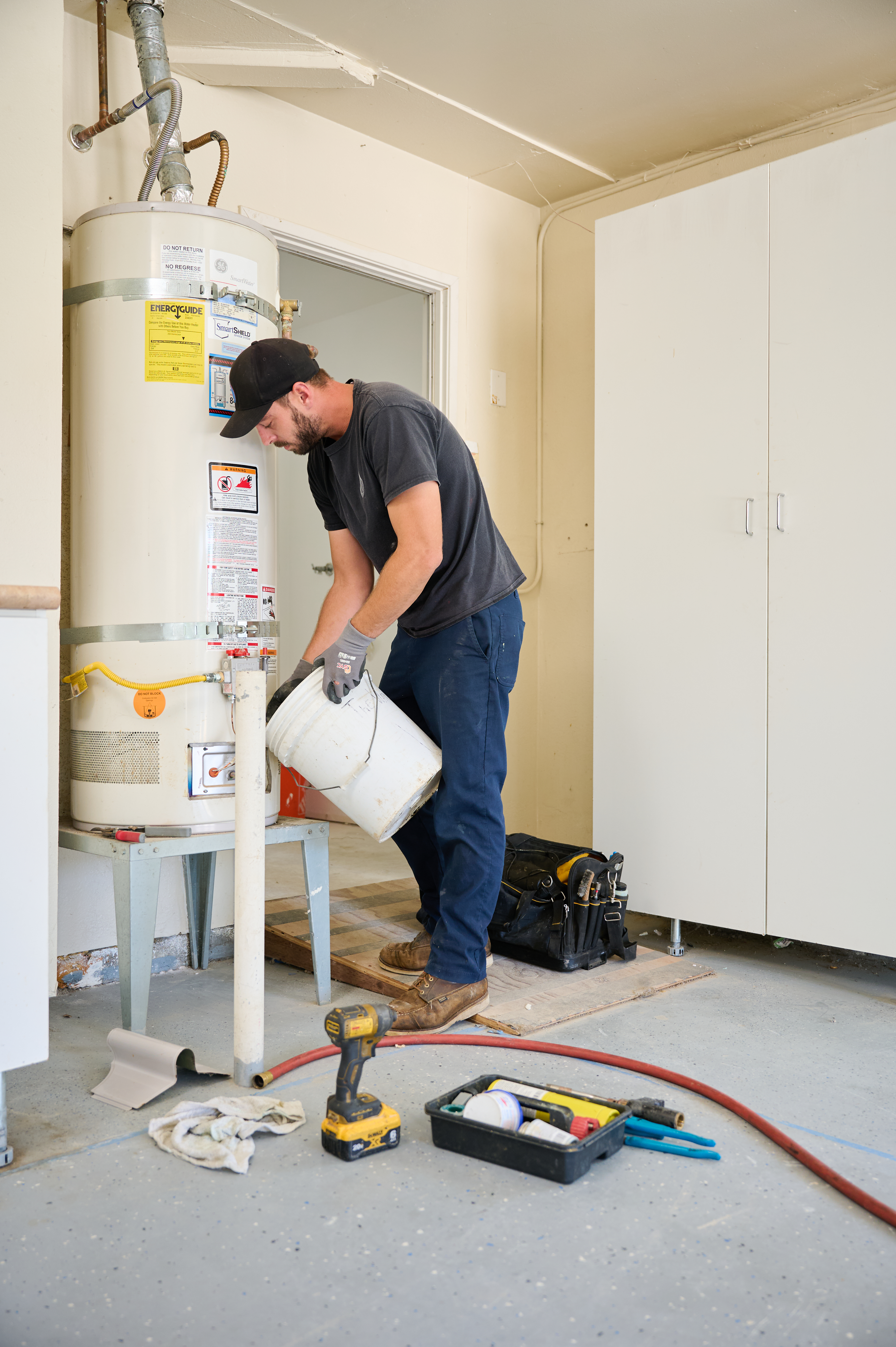
Learn about the different factors that go into water heater gas valve replacement costs to see if you should DIY the project or call a pro.
All the boiler "hot topics" you've been wondering about


Sometimes you can fix a broken boiler by adding water
A host of problems can lead to "noisy boiler" syndrome
The older the boiler, the less efficient it is
You can replace your old boiler with one of the same types fairly easily
Installing a new boiler calls for a licensed professional
An issue with your boiler won't just boil over on its own. You need to know what's normal, what's not, and what requires a call to a technician. Take a look at the top five homeowner concerns about boilers in basements.
According to Angi data, nearly 33% of customers report the most common oil boiler problem is regular wear-and-tear maintenance. Other frequently reported problems are leaking or cracked boiler, not heating correctly, oil smell or weird noise, or malfunctioning pilot light.
Check out how your oil boiler problem stacks up against other Angi customers:
This points to a few potential snags. First, check if you're low on water. Adding some water could do the trick. If you have a steam boiler, another possibility is that your pump isn't circulating due to a faulty trap or your supply valve is off.
When a steam boiler overfills, your boiler will make a sound. Pros commonly refer to that sound as “water hammer” because when steam hits the water, it sounds like someone hitting the pipes with a sledgehammer.
There's actually a long list of "boiler symphony" causes. Here's a cheat sheet of the common sounds your basement broiler may make:
Vibrating: Loose brackets
Banging: Faulty thermostat or debris buildup (in which case you would need a power flush)
Gurgling: Trapped air in the system, low water pressure, or a frozen pipe
Whistling: Limescale buildup on the heat exchanger, especially if you have hot water
Banging or tapping: Overheating or loose piping
The irony is that noisy boilers often keep secrets. It often takes detective work from a boiler pro to find the source.

Boiler heating systems cost more to install, but they ultimately lower fuel costs. Newer boiler systems are good for your budget, good for the environment, and safe to use in your home.
Modern boilers offer ultra-high efficiency because they warm water and distribute heat via radiators throughout your home instead of just warming the air and sending it through ducts.
Ultimately, boiler efficiency comes down to age and model type. Generally speaking, the older your boiler, the less efficient it is. If you installed a broiler within the last 20 years, it's probably around 98% efficient when operating properly. (This is good!)
You don't just have to guess about your boiler's efficiency. Have a technician come in to check combustion efficiency to get your score.
The fastest, easiest method for getting a new boiler is the like-for-like swap. This means you're replacing your current boiler with the same boiler type. While a simple swap often only takes a day, system upgrades and boiler relocations can take several days.
First, have an HVAC contractor suggest whether you can repair your basement boiler as most noises can be fixed. If a replacement is necessary, use these factors to determine the right model:
Locally available fuel sources (oil, gas, liquid propane, electric, or wood boilers)
Home size (how many BTU’s will keep your home warm and toasty)
Annual Fuel Utilization Efficiency (AFUE) ratings
Model-specific maintenance needs
You’ll need a licensed professional to install a boiler in most cities and states. Specific requirements vary by state, but you’ll need a heating or plumbing specialist experienced in boiler systems and the permits required for installation. The truth is that you would never want to leave this job in the hands of an unlicensed person.
Lastly, installing a boiler isn't a one-person job. Boilers weigh between 500 and 800 pounds, and you'll need a qualified crew to maneuver them.
From average costs to expert advice, get all the answers you need to get your job done.

Learn about the different factors that go into water heater gas valve replacement costs to see if you should DIY the project or call a pro.

Find out the average tankless water heater repair cost, what impacts pricing, and how to save. Get expert tips to plan your repair budget with confidence.

Tankless water heater costs in Columbus, OH depend on the size of your water heater, location, fuel type, and more. Keep reading to calculate your expenses.

Learn how much electricity the average water heater requires to run, plus how to calculate the daily and monthly cost to run your water heater.

Is there water in your water heater pan? Why is my hot water heater leaking? We’ll review common causes for leaking water heaters—and what to do.

Leakage, lacking hot water, and other signs tell you that your water heater is failing. Take action before it’s too late.